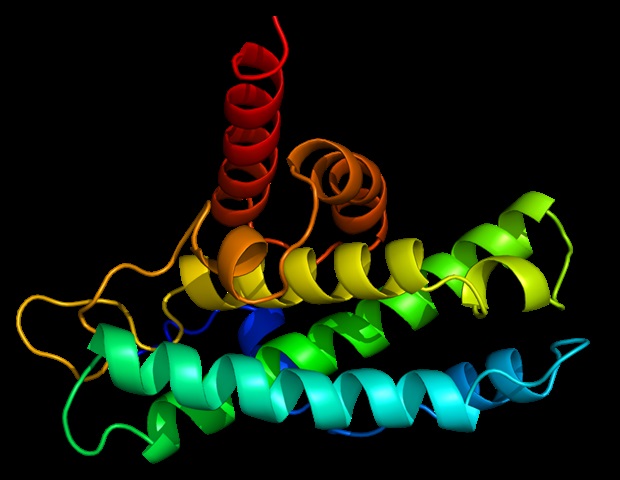Health
Researchers Identify NKAPL as Key Tumor Suppressor in Lung Cancer

Recent research has identified the gene NF-kappa-B-activating protein-like (NKAPL) as a significant tumor suppressor in non-small cell lung cancer (NSCLC), which constitutes over 80% of lung cancer cases. This discovery offers new insights into potential therapeutic targets for a disease often diagnosed at advanced stages, limiting treatment options for patients.
The NF-κB signaling pathway, known for its role in cancer progression and immune evasion, has few clearly defined upstream regulators in NSCLC. Researchers from Chongqing Medical University, Suining Central Hospital, Chongqing University, and Sichuan University conducted an extensive study revealing how NKAPL stabilizes the protein tripartite motif-containing 21 (TRIM21), thereby inhibiting NF-κB signaling. The findings were published on June 20, 2025, in the journal Genes & Diseases.
Research Findings and Methodology
The research team employed a combination of in vitro and in vivo experiments to demonstrate that NKAPL, which is frequently silenced through DNA methylation in NSCLC tissues, can significantly suppress cancer progression when re-expressed. The study began with a machine learning analysis of lung cancer methylation data from the TCGA database, where NKAPL was noted for its high prognostic value.
Results indicated that NKAPL was markedly downregulated in NSCLC tissues due to promoter hypermethylation. By restoring NKAPL expression in lung cancer cell lines, the researchers observed a suppression of cell proliferation, induction of apoptosis, and a reduction in migration and invasion. These effects were confirmed through various assays, including CCK8, colony formation, and transwell experiments.
In experiments using mouse models, overexpression of NKAPL resulted in smaller tumors and a decrease in metastatic lesions. Mechanistically, mass spectrometry and immunoprecipitation analyses indicated that NKAPL binds to and stabilizes TRIM21, which in turn regulates NF-κB signaling. Increased levels of TRIM21 were associated with NKAPL expression, leading to reduced phosphorylation of p65 and inhibition of downstream inflammatory signals. Notably, knocking down TRIM21 reversed the tumor-suppressive effects of NKAPL, underscoring its critical role.
Implications for Future Treatments
Dr. Tingxiu Xiang, the corresponding author of the study, emphasized the significance of these findings: “Our study not only uncovers a novel tumor suppressor role for NKAPL but also highlights its epigenetic silencing as a key event in NSCLC progression.” He added that NKAPL’s ability to enhance TRIM21 stability and dampen NF-κB signaling presents a promising therapeutic strategy, particularly for patients facing advanced disease with limited treatment options.
The research suggests that NKAPL could serve as a valuable biomarker for early detection and prognosis in lung cancer. The frequent methylation of NKAPL opens avenues for non-invasive screening methods, such as liquid biopsies. Furthermore, therapeutic strategies aimed at restoring NKAPL function—potentially through the use of methylation inhibitors or gene delivery systems—could inhibit tumor growth and metastasis by disrupting the NF-κB pathway.
Looking ahead, combining NKAPL-targeted approaches with conventional therapies may enhance patient outcomes, offering a more effective and personalized treatment option for those battling lung cancer.
-

 Entertainment2 months ago
Entertainment2 months agoIconic 90s TV Show House Hits Market for £1.1 Million
-

 Lifestyle4 months ago
Lifestyle4 months agoMilk Bank Urges Mothers to Donate for Premature Babies’ Health
-

 Sports3 months ago
Sports3 months agoAlessia Russo Signs Long-Term Deal with Arsenal Ahead of WSL Season
-

 Lifestyle4 months ago
Lifestyle4 months agoShoppers Flock to Discounted Neck Pillow on Amazon for Travel Comfort
-

 Politics4 months ago
Politics4 months agoMuseums Body Critiques EHRC Proposals on Gender Facilities
-

 Business4 months ago
Business4 months agoTrump Visits Europe: Business, Politics, or Leisure?
-

 Lifestyle4 months ago
Lifestyle4 months agoJapanese Teen Sorato Shimizu Breaks U18 100m Record in 10 Seconds
-

 Politics4 months ago
Politics4 months agoCouple Shares Inspiring Love Story Defying Height Stereotypes
-

 World4 months ago
World4 months agoAnglian Water Raises Concerns Over Proposed AI Data Centre
-

 Sports4 months ago
Sports4 months agoBournemouth Dominates Everton with 3-0 Victory in Premier League Summer Series
-

 World4 months ago
World4 months agoWreckage of Missing Russian Passenger Plane Discovered in Flames
-

 Lifestyle4 months ago
Lifestyle4 months agoShoppers Rave About Roman’s £42 Midi Dress, Calling It ‘Elegant’









